
The young fashion designer Guna Nebare has created a clothing brand that looks for inspiration in Latvia’s ethnographic heritage: peasant clothing, historical textiles, and age-old techniques. The brand’s garments are made from simple and natural fabrics, which, in the hands of Guna and her team, are transformed into romantic pieces that embody the idyll of the Latvian countryside.
Guna Nebare creates sustainable summer clothing designed in the spirit of historical peasant dress and lingerie. It echoes the popular cottagecore aesthetic that romanticises a peaceful life in the countryside. This is reflected in the materials chosen for the garments as well as in the detailing — lace, bows, ties, and other elements. Guna chooses fabrics that are simple and raw — unbleached cotton, jute, hemp, and other natural materials that are rarely used in contemporary fashion.

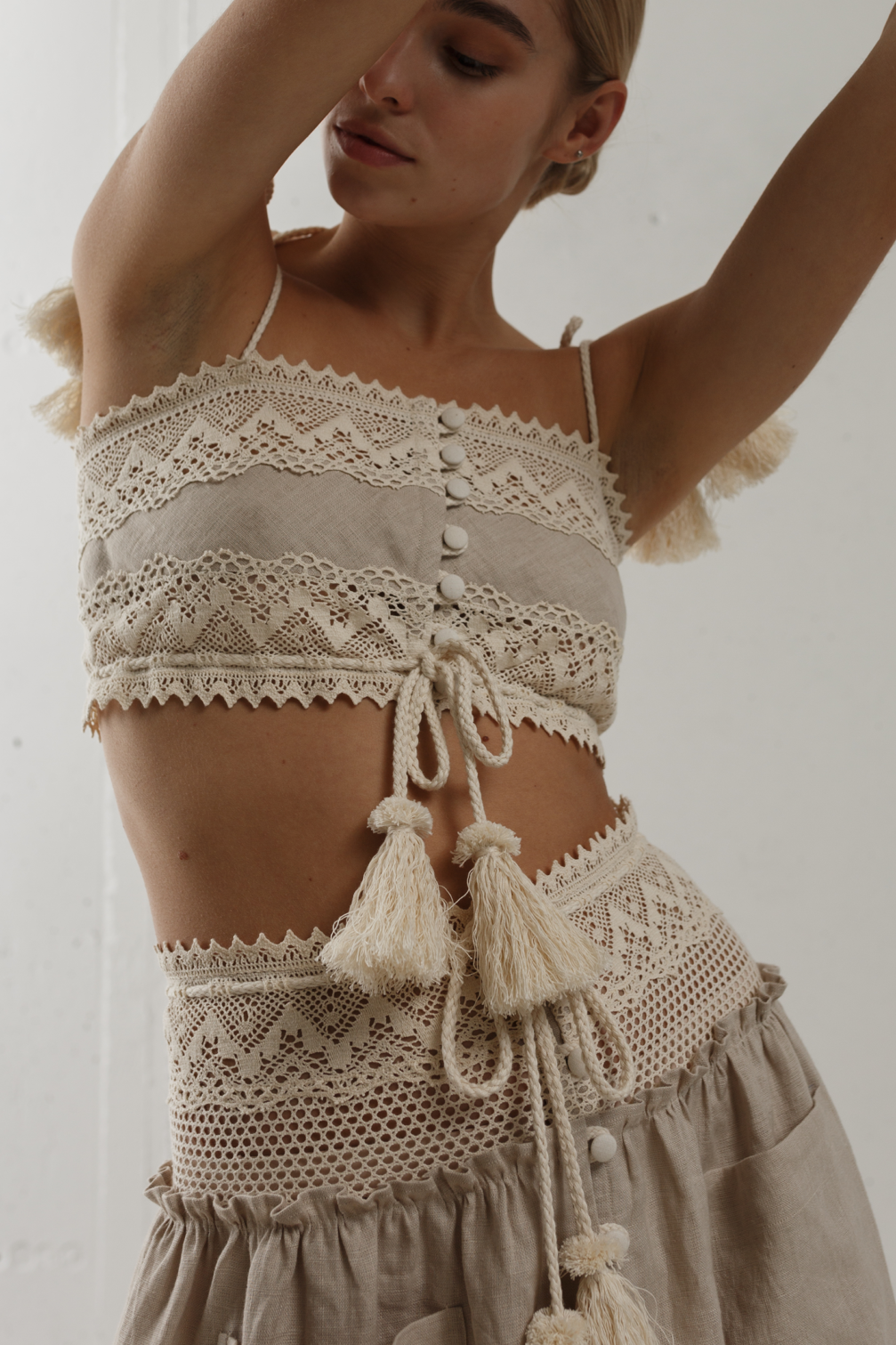
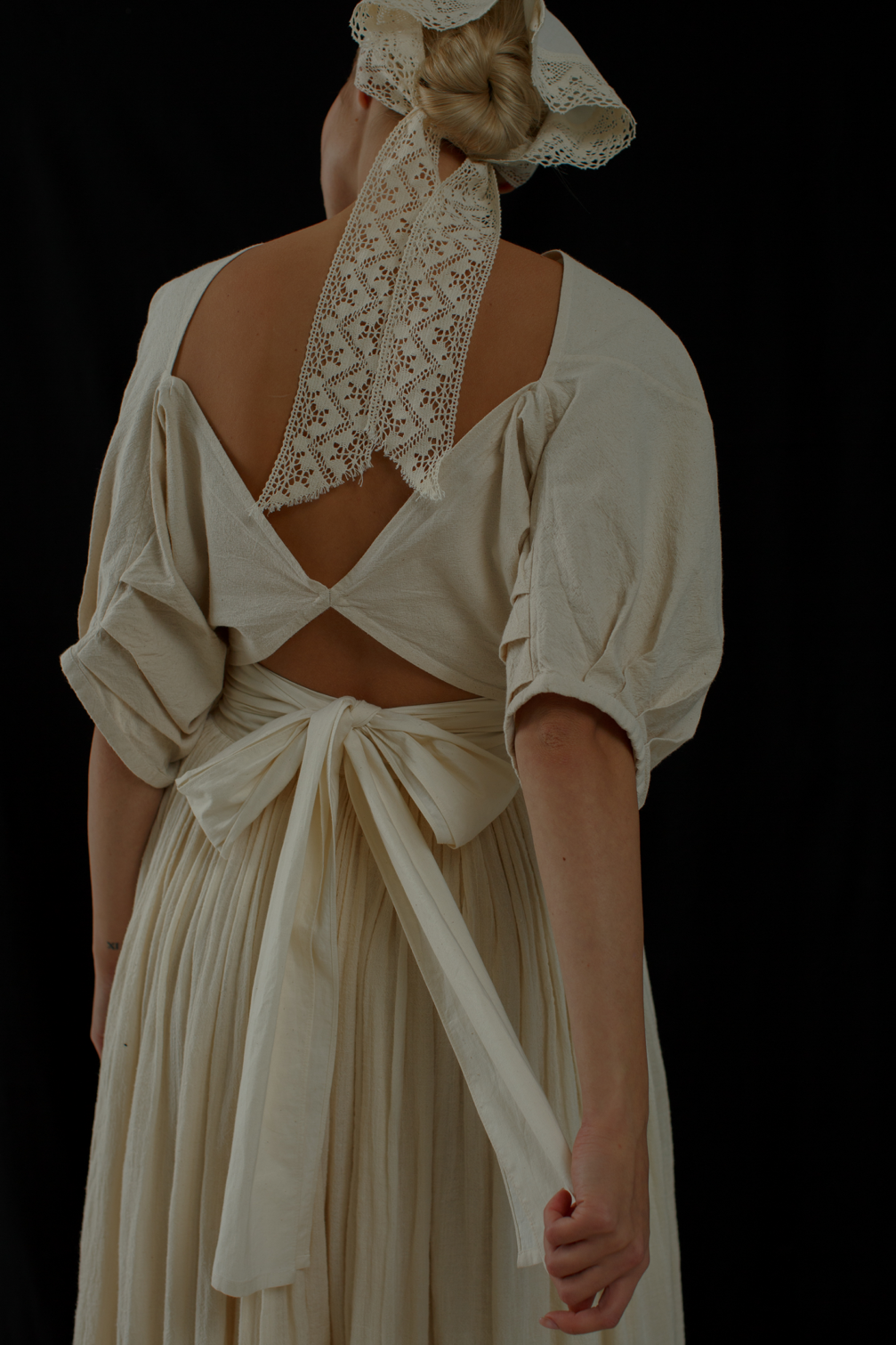
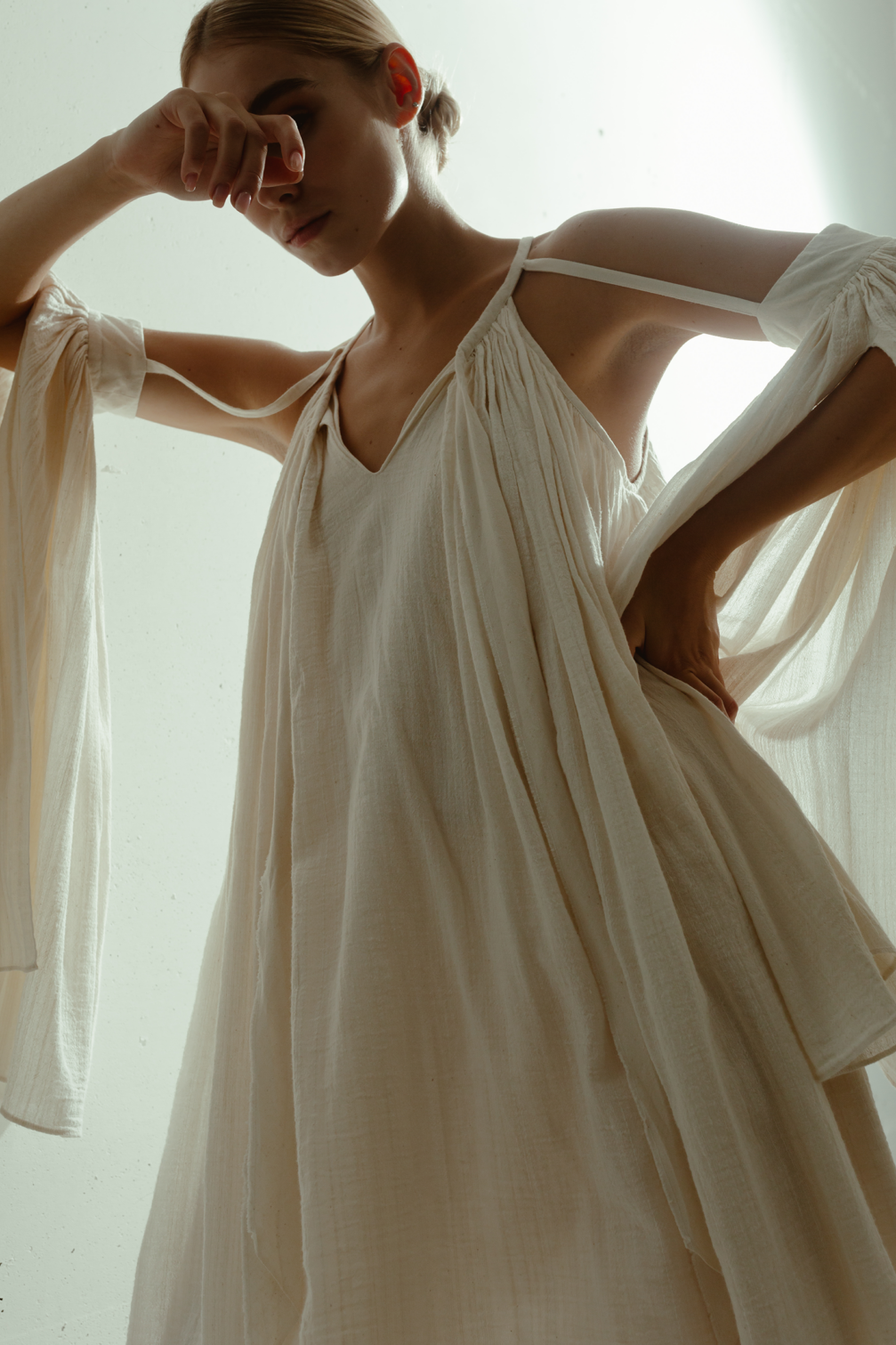
In 2023, the Oatmilk & Coal collection was launched, inspired by the feeling of the natural materials of the garment against the wearer’s skin. The collection ranges from luxurious and finely crafted garments for festive occasions to laconic and comfortable pieces for everyday wear. Both the name of the collection and the colours used, white and black, play on contrasts. «The Sunday morning white against the «get your hands into the soil» black,» Guna describes the collection.
The brand embodies the slow fashion approach — the collection is continuously and gradually updated without following the fast fashion cycle that requires several collections a year. All materials used are natural (and organic if possible), and the brand also follows a low-waste philosophy wherever possible, sewing garments only to order. Guna Nebare’s range also includes items made from recycled textiles, such as textile bags sewn from approximately 50-year-old canvas sacks that were formerly used for storing vegetables.
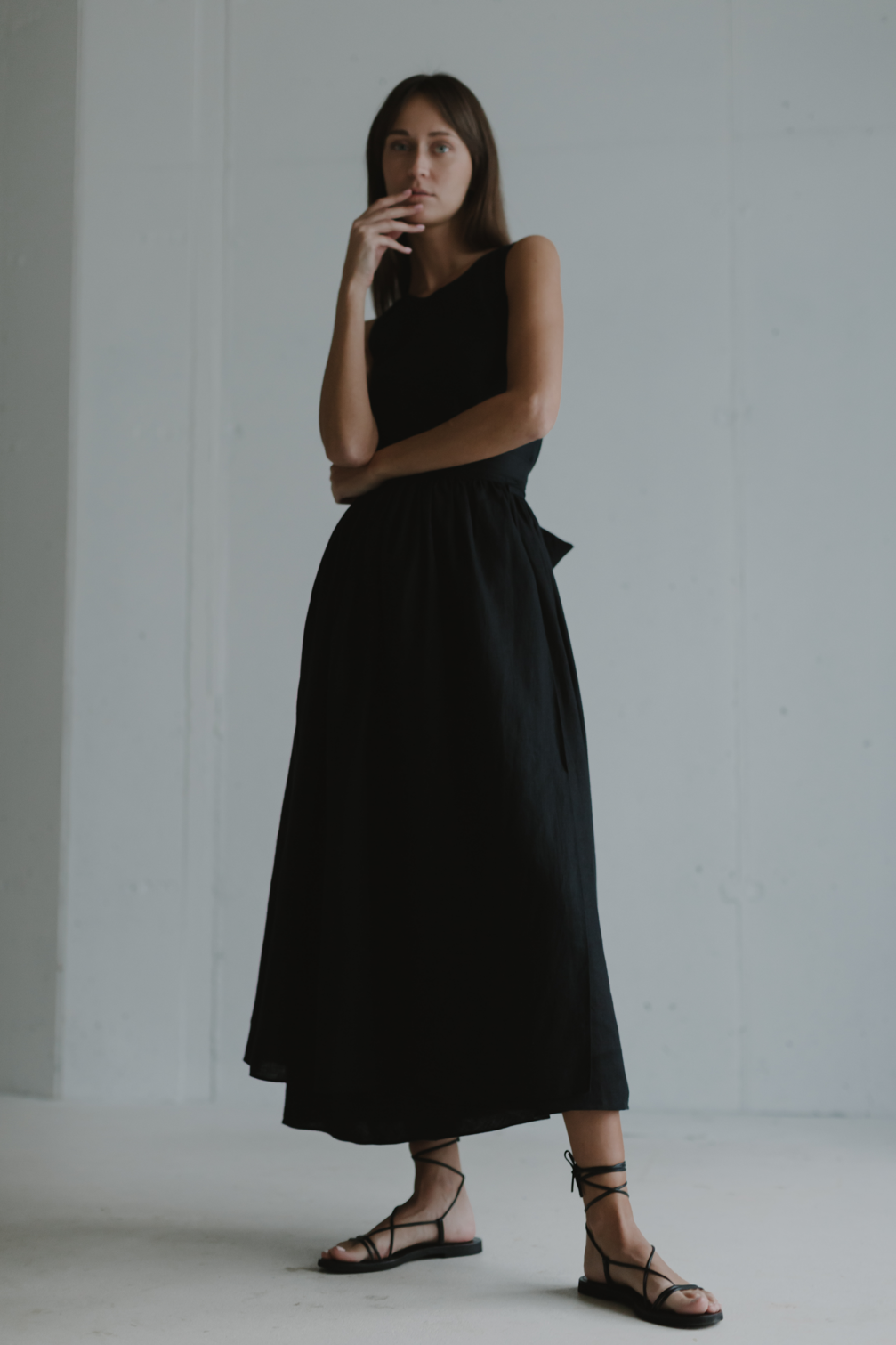
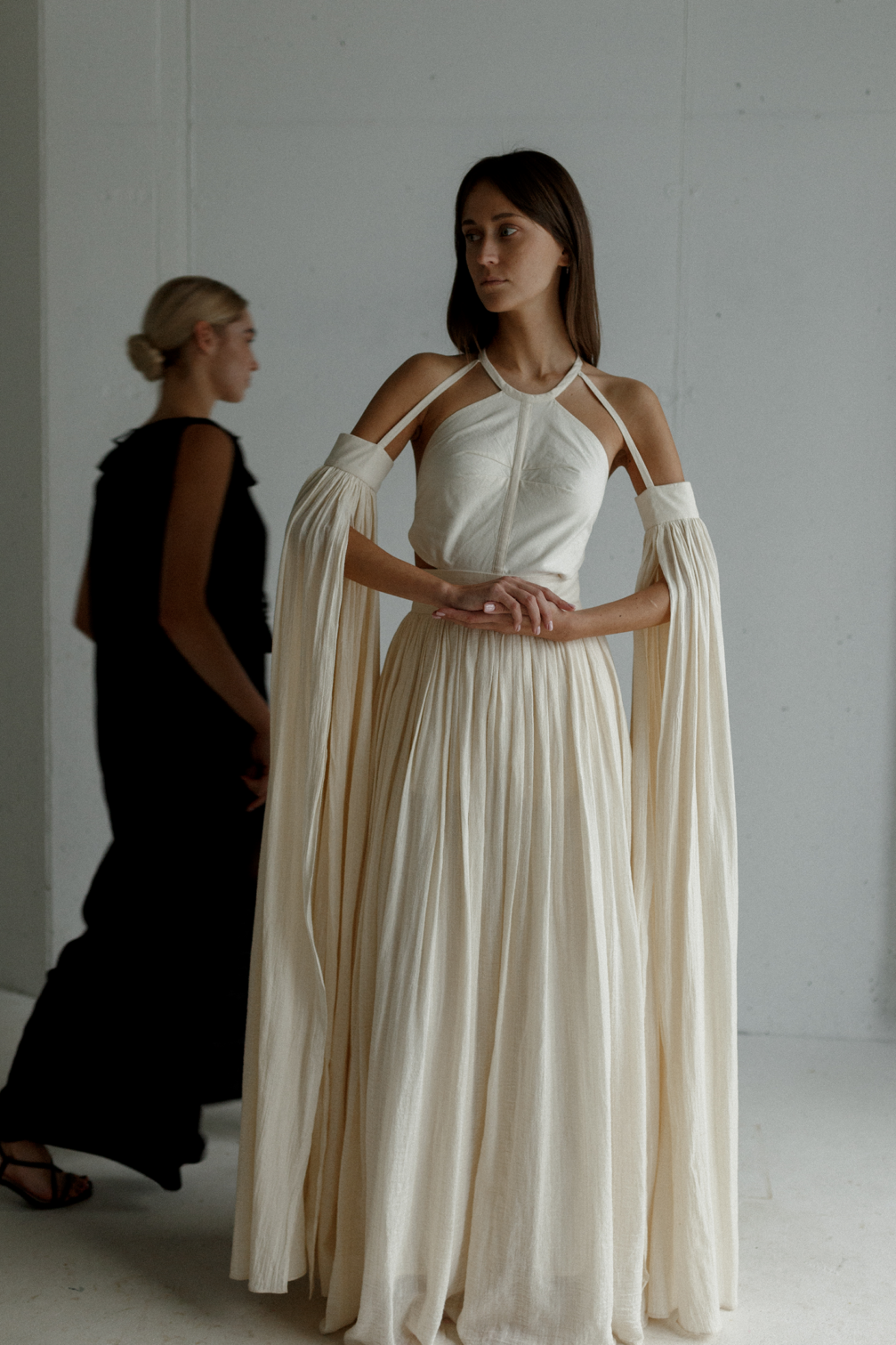
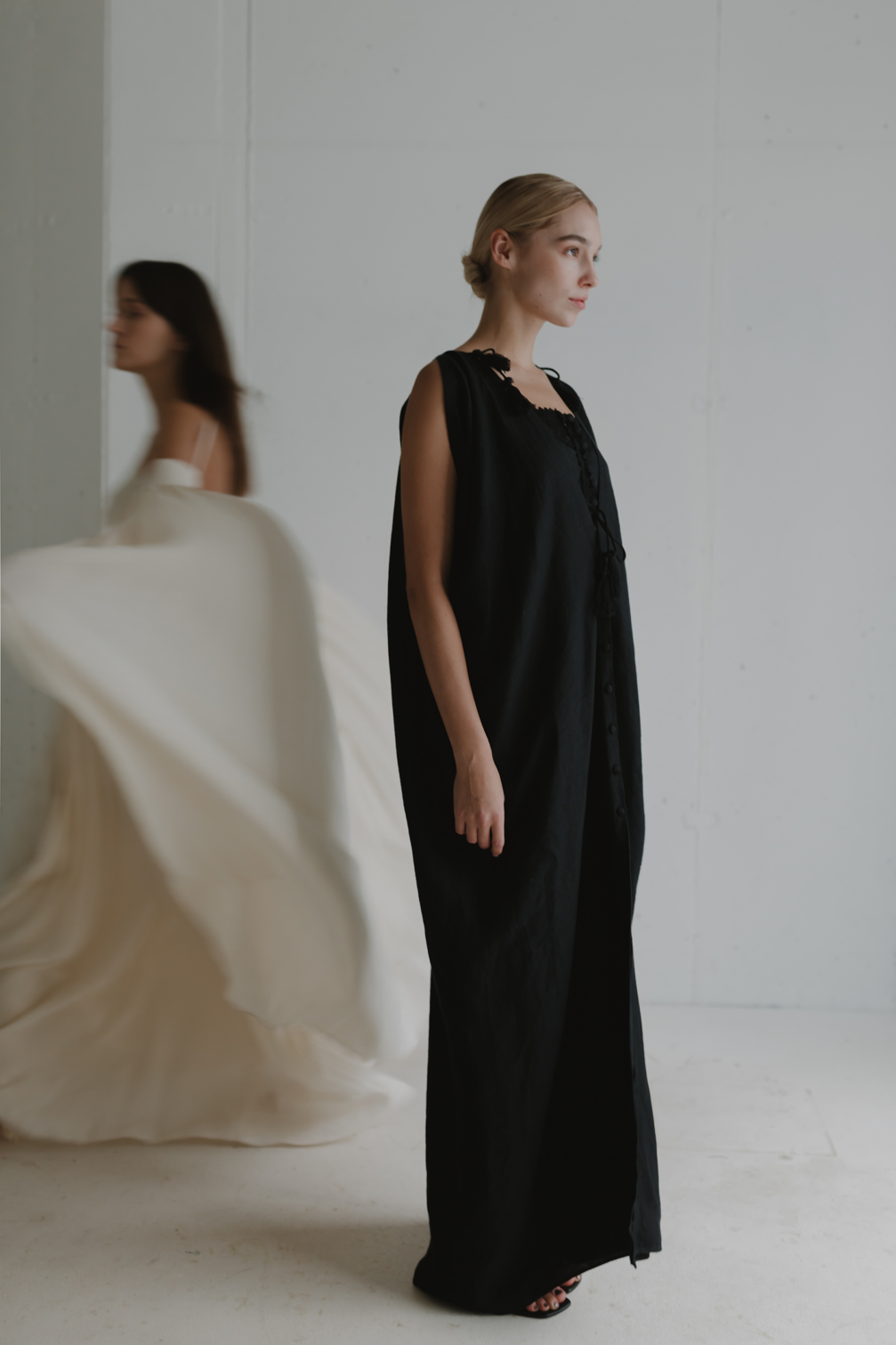
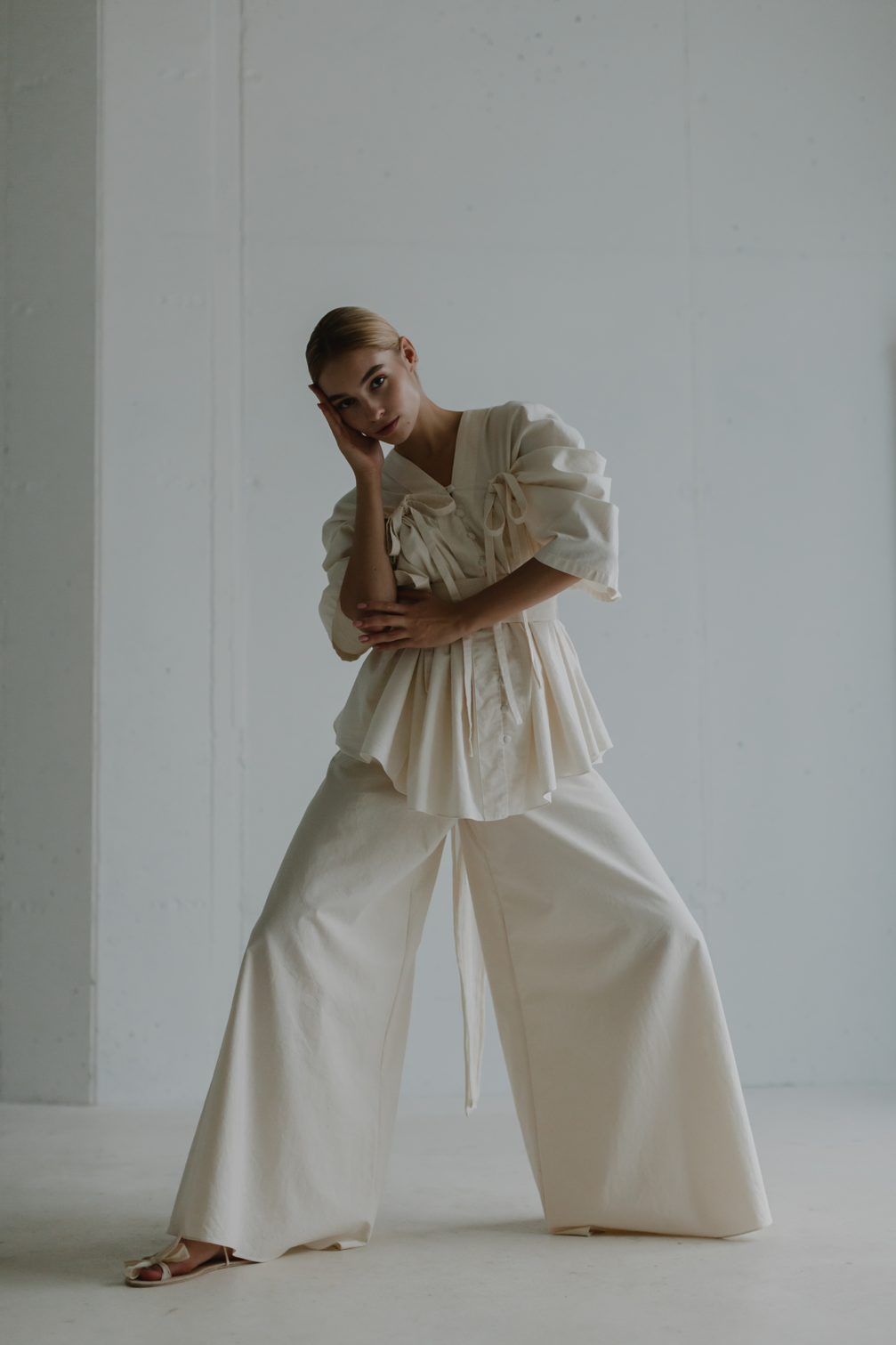
By avoiding modern fastenings and details like buttons, zips, and elastics, using ties instead, the brand’s garments are easier to recycle. Guna’s long-term goal is to make all of the brand’s products fully biodegradable. The use of historic fastenings is also sustainable in other respects — the tie closures allow the garment to adapt to the wearer’s changing body. «The clothes are designed to adapt to the body as much as possible and to fit multiple body types and sizes, thus prolonging their wearability. Weight fluctuations are not so scary when clothes adapt to the body and its changes,» says Guna. For example, this summer, the collection will introduce a linen dress with corset elements that fits six sizes.
More information about the brand on the Guna Nebare website.

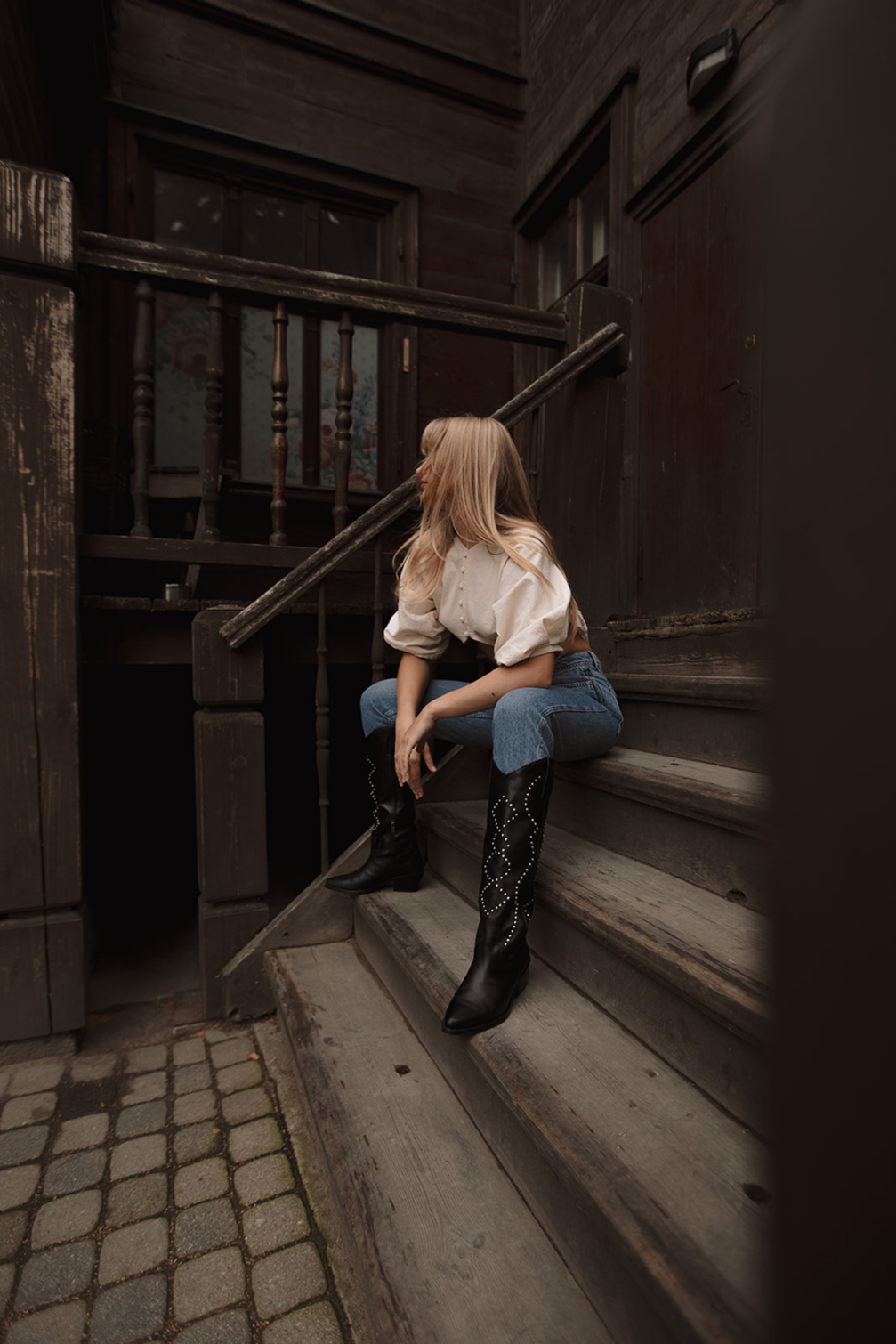
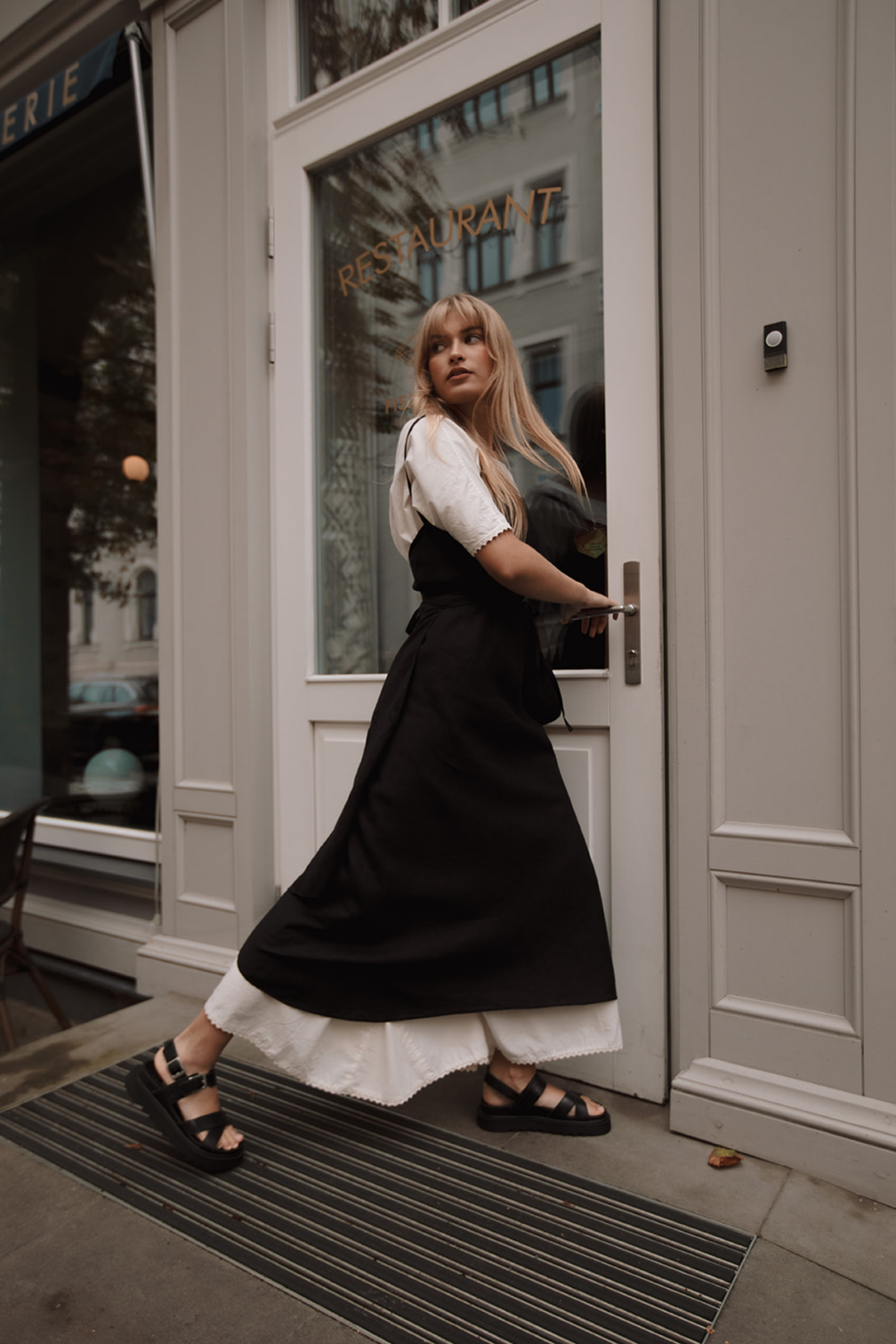

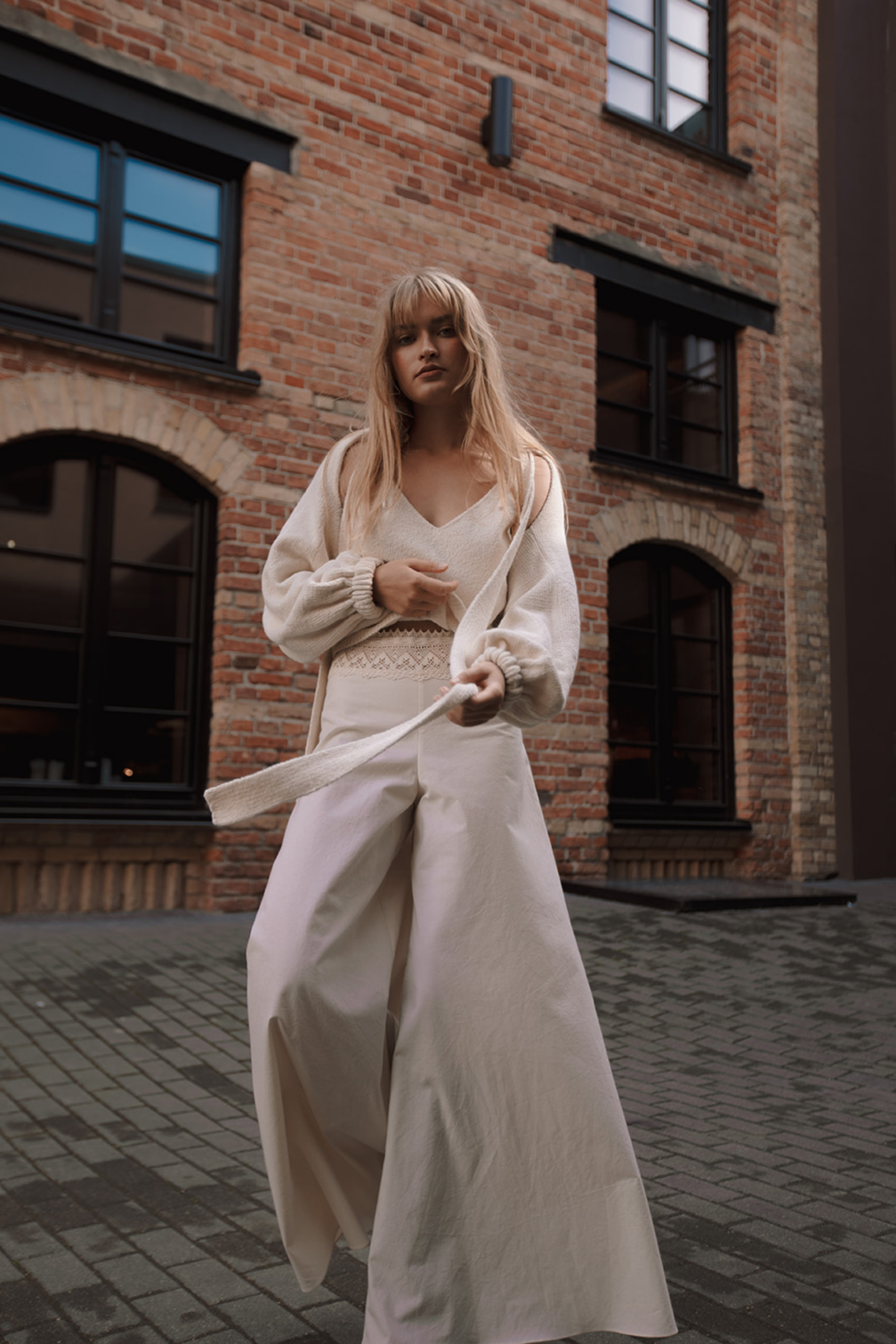
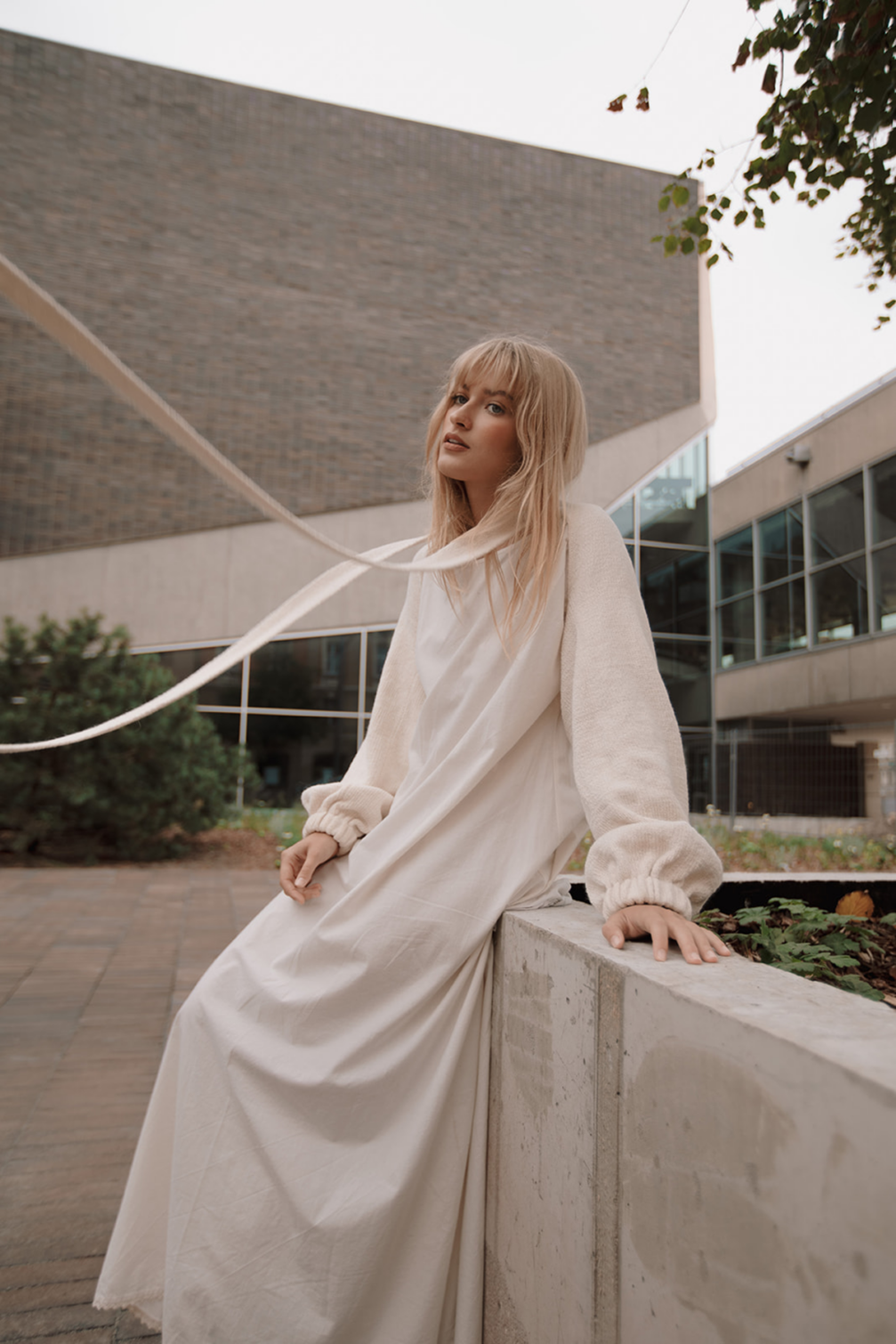


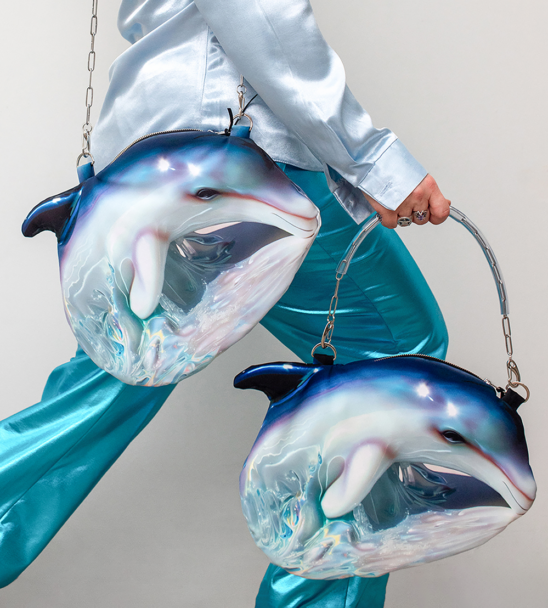
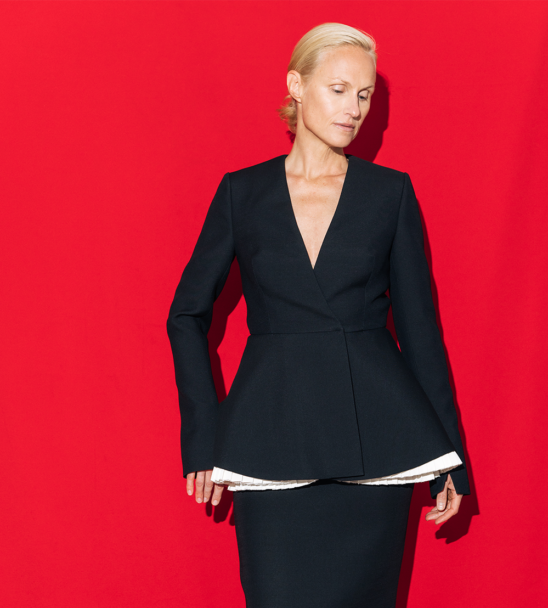
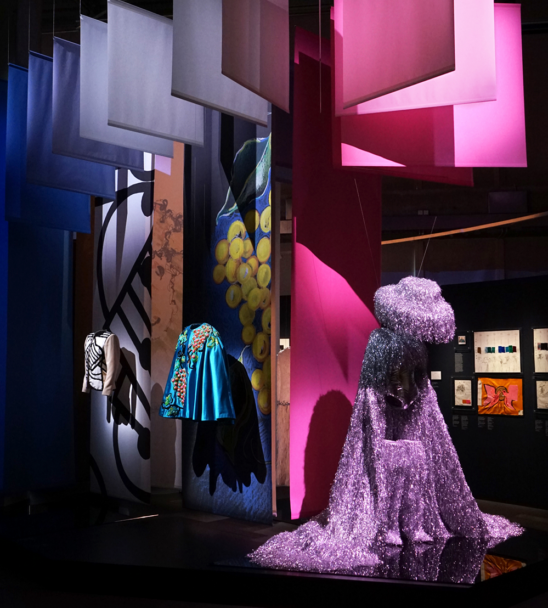

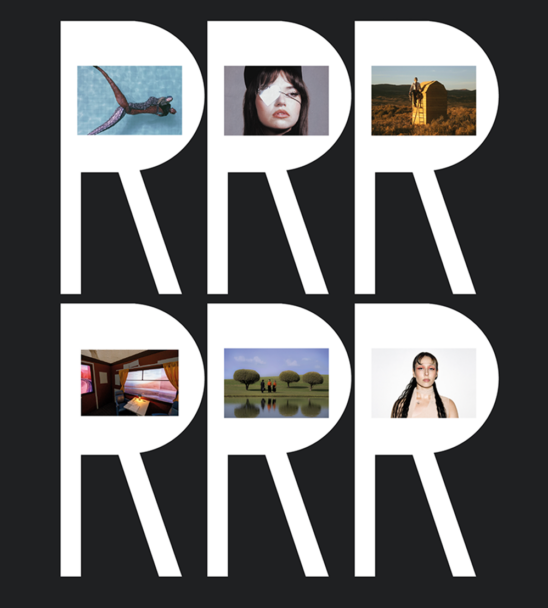


Viedokļi